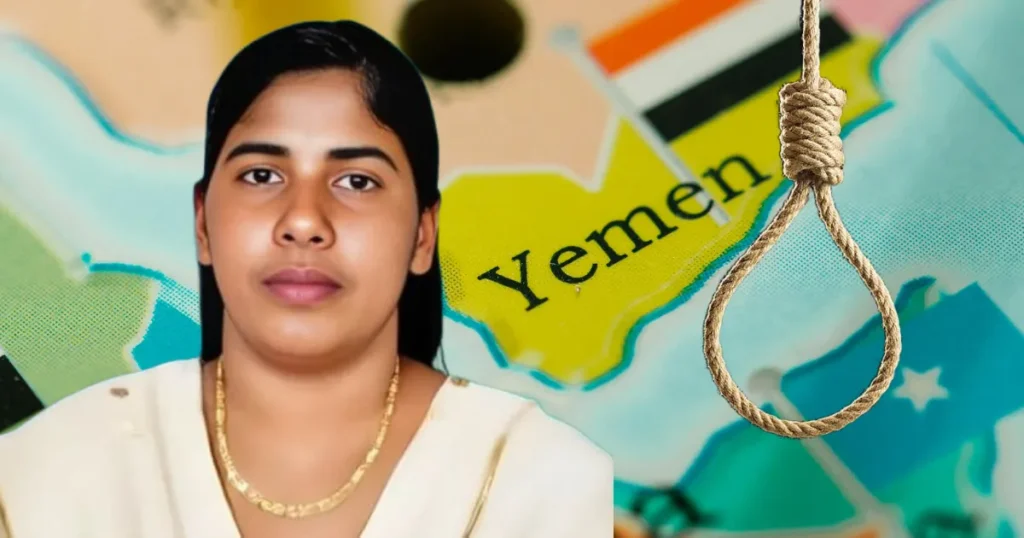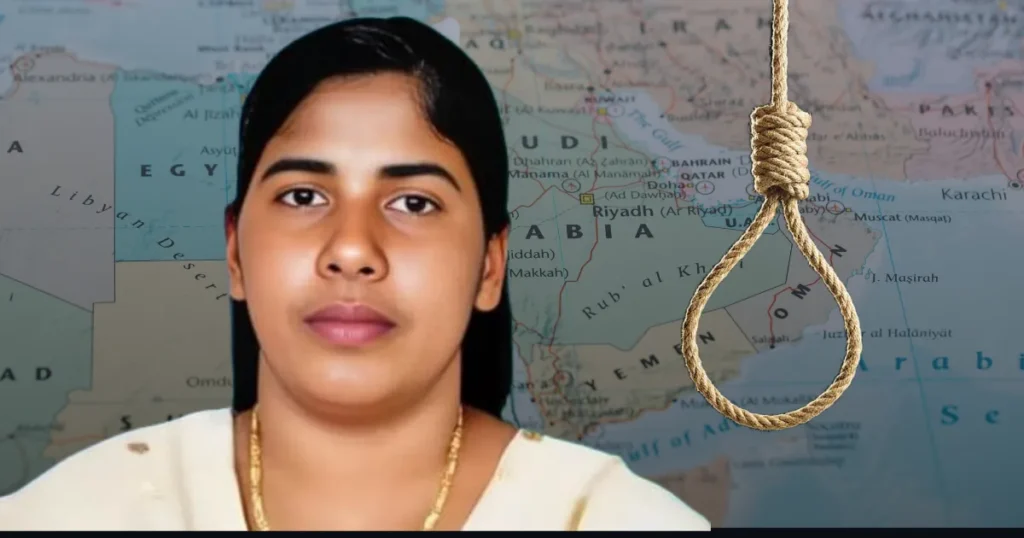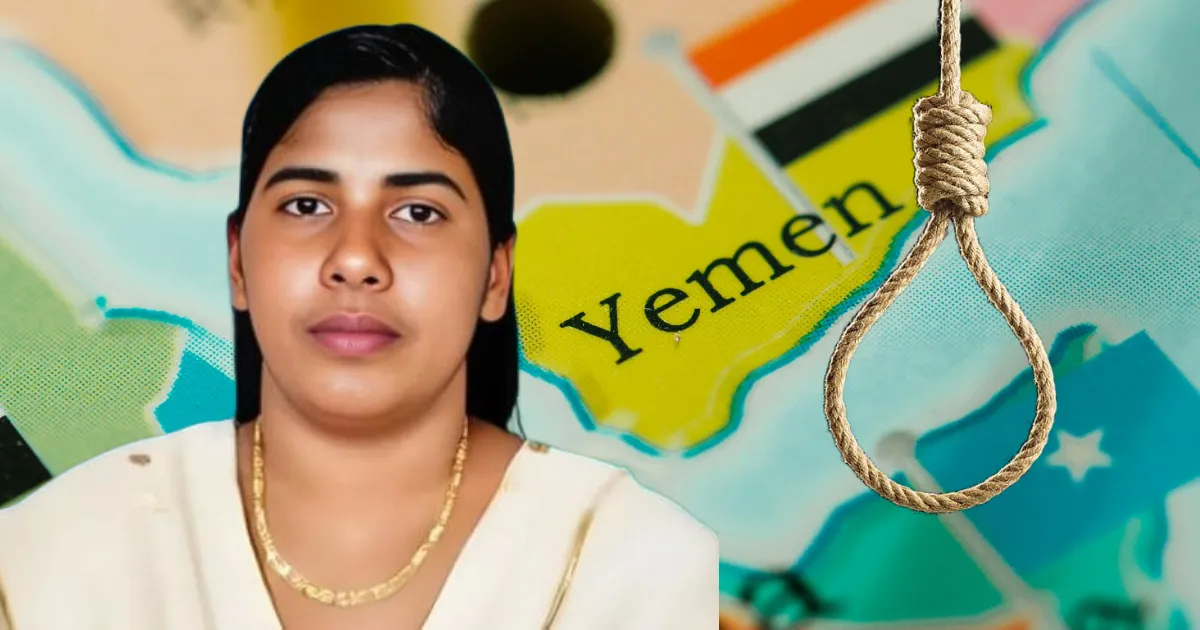Nimisha Priya Case Spurs International Attention Amid Legal Hurdles
The Nimisha Priya case, unfolding in Delhi and Yemen, highlights diplomatic, legal, and humanitarian challenges as India seeks a solution for her death sentence
Delhi, India | July 16, 2025, 3:56 PM IST – The Nimisha Priya case has drawn widespread attention in India and internationally, as a young Indian nurse faces a death sentence in Yemen. The story, which weaves together legal, diplomatic, and human rights challenges, continues to prompt urgent calls for action among politicians, activists, and the Indian community around the world.
Who Is Nimisha Priya?
Nimisha Priya, a nurse from Kerala, traveled to Yemen seeking work and better opportunities for her family. Her path took a tragic turn when she was arrested and sentenced to death, accused of involvement in the death of her Yemeni employer in 2017. The case has since become a symbol of the challenges Indians face abroad, especially in conflict zones where diplomatic reach is limited and legal processes are vastly different from those in India.

The Case Details: What Happened in Yemen?
A Death Sentence Abroad
- In 2017, Nimisha Priya was accused and later convicted of causing the death of her Yemeni employer.
- Reports suggest she claimed she was trying to retrieve her passport and escape alleged abuse, but the act tragically resulted in the employer’s death.
- Yemeni courts, operating under Sharia law, imposed the death penalty. Her conviction is now at the final stage, with all appeals exhausted.
Diplomatic and Legal Complexities
India’s diplomatic leverage in Yemen is challenging due to the ongoing conflict and a weakened Indian presence. The Indian Embassy’s ability to provide legal assistance or negotiate is limited, complicating efforts to save Nimisha Priya. International rights groups and legal experts argue that her trial lacked access to proper defense and translation, raising questions of fairness and due process.
Public Reaction and Advocacy Efforts
Across India—especially Kerala—public outcry has swelled. Protests, online petitions, and support from advocacy groups are aiming to force government intervention. Many compare this case to other high-profile overseas detentions, highlighting the vulnerability of Indian nationals abroad.
“Nimisha’s case underlines why more robust consular support and proactive legal aid are crucial for Indians working abroad, particularly in high-risk regions,” says Dr. Rajiv Menon, a Delhi-based international law expert.
Several MPs have raised the issue in Parliament, while activists urge the government to leverage diplomatic channels, possibly pushing for ‘blood money’ negotiations—an Islamic law provision allowing victims’ families to accept monetary compensation in exchange for sparing the life of the accused.
Renewed Hope With ‘Blood Money’
- Families and advocates are trying to reach a settlement with the deceased’s relatives in Yemen.
- The Indian government, through official and community networks, is working behind the scenes to collect the required blood money amount and negotiate with Yemeni authorities for leniency.
Read more: Sabih Khan: The Unsung Genius Behind Apple’s Global Success
Legal Experts Weigh In
Legal experts point out that Sharia law cases often permit a reprieve through financial compensation, but successful negotiation depends entirely on the victim’s family’s willingness to forgive. Major hurdles remain, as Yemen’s unstable political climate delays communications and agreements.

Broader Implications: Indian Workers Overseas
The Nimisha Priya case highlights the daily risks faced by expats, especially nurses and healthcare workers who form a large segment of India’s overseas workforce. Many urge greater government oversight and more formal agreements with countries hosting Indian workers, especially those with vastly different legal systems.
Expert Analysis
“We must learn from this tragedy. The government needs protocols for rapid legal, financial, and emotional support when Indian citizens are entangled in foreign courts,” said Professor Leena Joseph, an international affairs commentator at Delhi University. “It’s not just about this one case—every year, dozens of workers face life-changing legal predicaments because there are too few resources dedicated to their aid.”
Community and Humanitarian Appeals
Social media is filled with appeals from Nimisha Priya’s family, urging the public for funds and awareness. The Kerala diaspora in the Gulf has earned praise for their coordinated fundraising and advocacy efforts.
Human rights organizations stress the need for fair trials, translation assistance, and consular access for all foreign nationals, especially women, in conflict regions.
FAQs About the Nimisha Priya Case
Why is the Nimisha Priya case so significant?
This case represents the dangers faced by Indian workers abroad and raises questions about the limits of diplomatic protection and the fairness of legal proceedings for foreign nationals.
What can be done to help?
Donations to recognized support groups and raising global awareness are the main channels available. Advocacy groups continue to pressure both Indian and Yemeni authorities for a humane resolution.
Has the Indian government officially intervened?
Yes, Indian authorities are involved behind the scenes, aiming to facilitate negotiations and offer legal aid. However, diplomatic barriers and Yemen’s instability complicate intervention.
What is the current status of Nimisha Priya?
She remains on death row in Yemen, with her fate hinging on a possible blood money agreement with the victim’s family.
The Nimisha Priya case continues to evolve, with activists, officials, and ordinary citizens rallying to save her life and demand justice. The situation is a sobering reminder of the challenges faced by Indian expatriates and the pressing need for stronger international support systems. As attention grows, pressure mounts on both governments to find a humanitarian solution, signaling hope amid the uncertainty.
For continuous updates and ways to support the campaign, follow local news and advocacy organizations focused on Indian expatriate rights.

